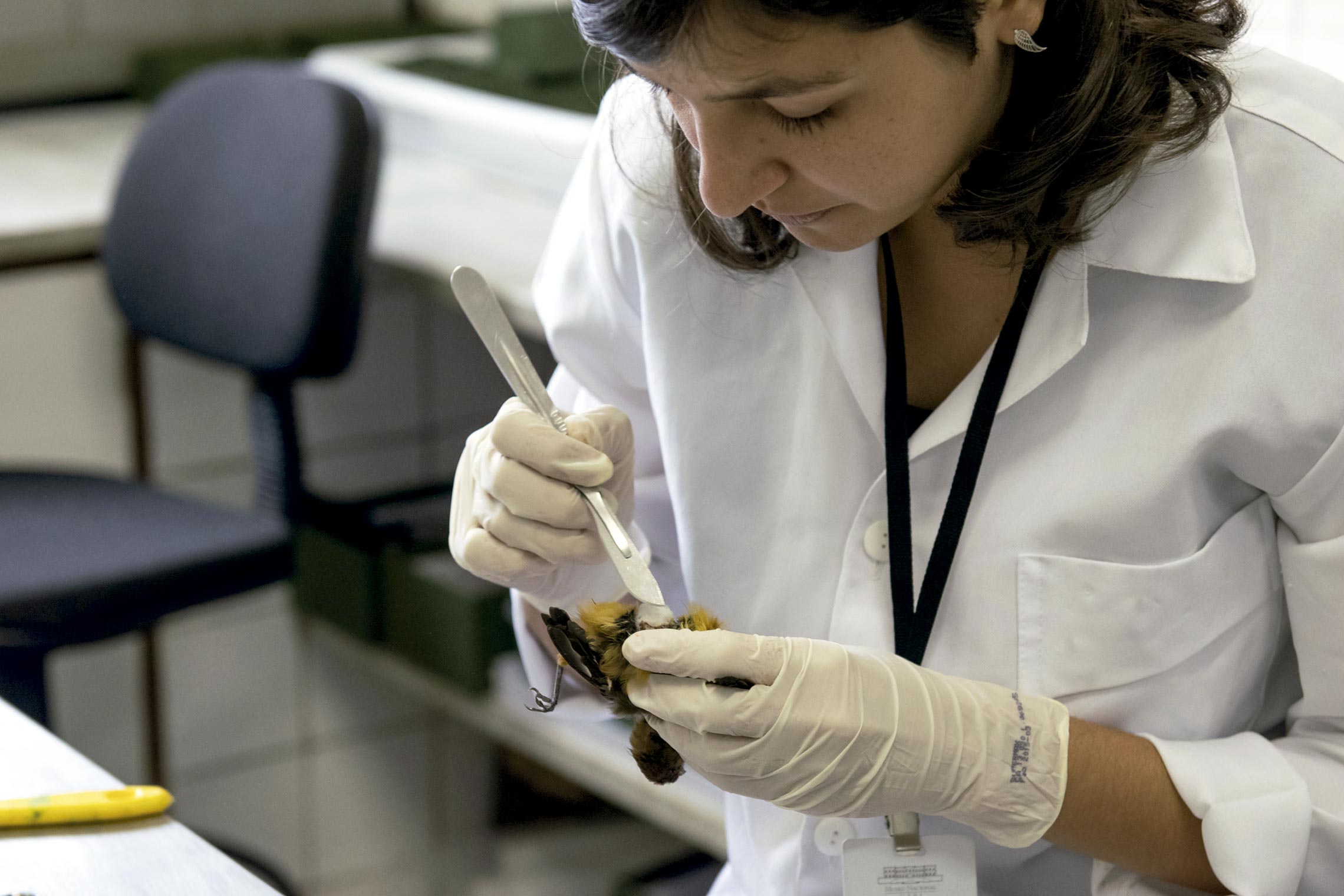GRADUATE STUDIES
Fire affects six of the institution’s graduate programs, of which two are world-class
In addition to destroying highly valuable scientific and historical collections, the fire that consumed the National Museum on the night of September 2nd also strongly impacted six graduate programs that are based at the institution. In total, 89 professors and close to 500 students doing master’s, PhDs and specialization courses, as well as postdoctoral students, had their research projects affected to varying degrees by the tragedy. The greatest concern is related to the loss of equipment and laboratories, as well as research and bibliographic material, which could compromise the progress of the studies.
One of the most affected programs was that of archaeology, which includes 29 master’s students and 31 PhD students. “Beyond the destruction of the archaeological archive at the museum, the fire destroyed the program’s materials, infrastructure and documentation. Close to 80% of our infrastructure was housed in the museum’s main building. Out of the seven laboratories, only two, which operated in the Botanical Garden, were preserved,” reports archaeologist Rita Scheel-Ybert, coordinator of the program. Initiated in 2006, the Graduate Program in Archaeology (PPGArq) offers three lines of research: studies of cultural material, populations of Brazilian territories, and populations, environment and culture.
There was also a significant impact on the Zoological Program (PPGZOO), which is considered one of the top programs in the country—earning a grade of 6 in the most recent assessment by the Brazilian Federal Agency for Support and Evaluation of Graduate Education (CAPES). “One-third of the 45 professors had their laboratories destroyed and were directly affected by the tragedy,” confirms coordinator Alexandre Dias Pimenta. “In relation to the students, 38 were negatively impacted. Some lost all of their research material, making it impossible to continue with the originally proposed project.”
The fire also consumed books, computers, video projectors, and research artifacts that were stored in the offices of close to 30 professors from Social Anthropology, Linguistics, and Ethnology and Ethnography. Established 50 years ago, the Graduate Program in Social Anthropology (PPGAS) was a pioneer in this area in Brazil. “Since the program began, 495 master’s dissertations have been defended and 342 doctoral theses. During the CAPES evaluations, we always receive the highest rating: 7,” says anthropologist John Comerford, program coordinator.
Another course that was pioneered by the National Museum is the Professional Master’s in Linguistics and Indigenous Languages (PROFLLIND), with its first class having only begun in 2016. Poised for affirmative action, it offers 70% of its spaces (14 out of a total of 20) for candidates who are self-declared indigenous. The Linguistics Sector also offers two specialization courses, one being Brazilian Indigenous Languages and the other Generative Grammar and Cognition Studies, as well as the long-distance course, Brazilian Indigenous Languages.
The Department of Geology and Paleontology (DGP) is responsible for the master’s degree in Geosciences – Geo-Paleontological Heritage, which began only three years ago, as well as the specialization course, Quaternary Geology (GeoQuater), focused on the study of geological, paleontological, and archaeological problems that have occurred in the current geological period, beginning about 2.6 million years ago to present day.
Of all of the graduate programs, the only one that was not directly affected by the fire was the botany program. The reason for this is that, since 2008, the Department of Botany operates out of the Botanical Garden, which is situated 400 meters from the building that caught fire. “The only equipment we used on a regular basis was the scanning electron microscope, which was kept in the São Cristóvão Palace, and was lost,” confirms biologist Andrea Ferreira da Costa, who coordinates the program. With a CAPES rating of 4, the Botany Graduate Program (PPGBOT) was established in 1972 and has conferred 434 master’s degrees and 103 PhDs. The doctoral course was the first of its kind established in the state of Rio de Janeiro and the eighth in the country.
Republish
